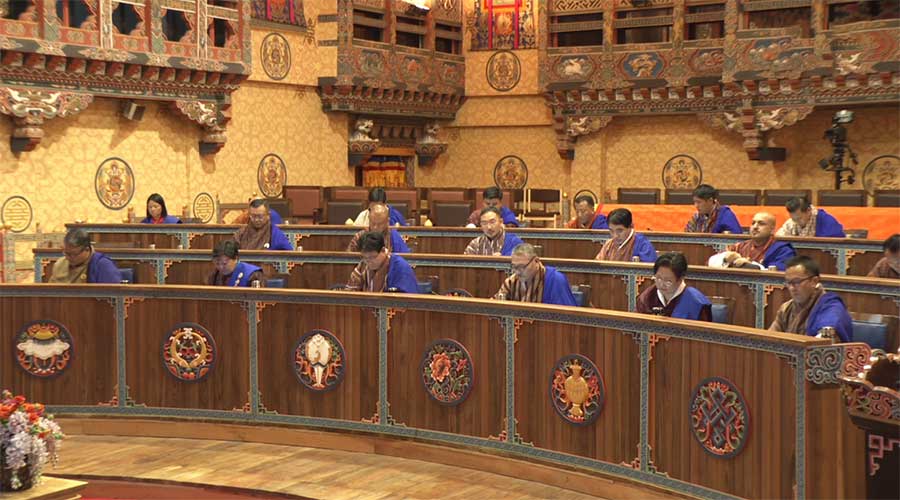
The National Council members concluded the deliberations on the Convention on Rights of Persons with Disabilities accepting all the articles and the four reservations passed by the National Assembly. The house will deliberate on the adoption of the Convention next Wednesday following which it will be sent for Royal Assent for ratification. During the deliberations today, some members raised the need for proper monitoring and implementation once it is ratified. Bhutan will be the 187th country to ratify the convention out of 193 member countries.
“The laws are being enacted, however, there is no one to monitor and assess how laws are being implemented. I want to ask how the committee is planning to monitor and ensure that it is being implemented by foreign and external trade ministry, NGOs and other relevant agencies,” said Kencho Tshering, Bumthang MP.
To this, the chairperson of the Social and Cultural Affairs Committee said the Cabinet will coordinate to ensure that relevant agencies properly implement the agreement.
Bumthang’s MP also questioned what took Bhutan so long to ratify the convention.
The Chairperson of the Social and Cultural Affairs Committee said that the Cabinet had begun works for ratification after Bhutan became a signatory to the United Nations Convention on Rights of Persons with Disabilities in 2010.
Tshering Tshomo, the chairperson of the committee added that after signing the convention, the cabinet, in 2015, called for deliberation to ratify the convention during the sixth session of the second parliament.
“The convention was rejected during the sixth session of the second parliament. The cabinet appointed the health ministry as the lead agency but it did not accept the proposal. This was because the convention was cross-sectoral in nature.”
In 2019, a policy for persons with disabilities was also drafted and adopted by the Cabinet.
According to the Social and Cultural Affairs Committee, the convention will ensure that people living with disabilities enjoy equal rights to education, health, employment, participation, and social protection among others.
Tashi Yangden and Tashi Deker
Edited by Phub Gyem










